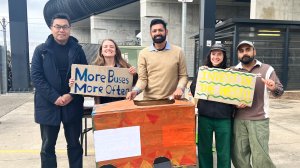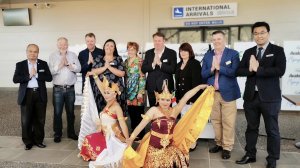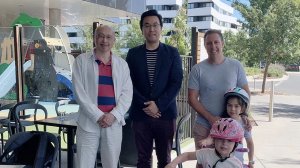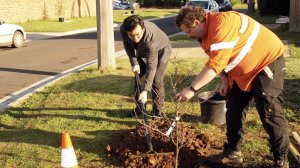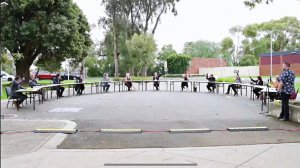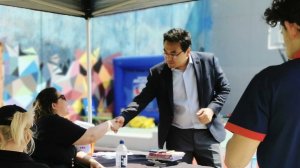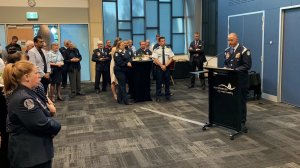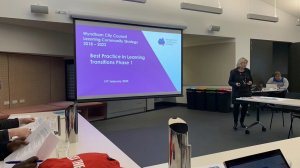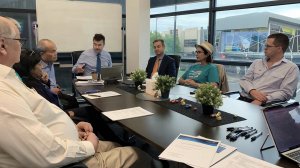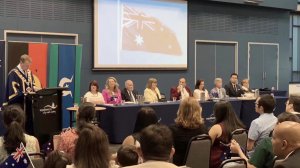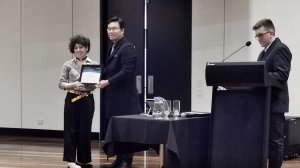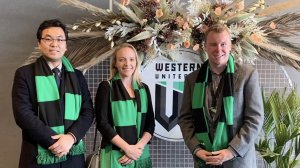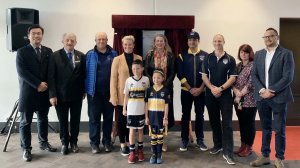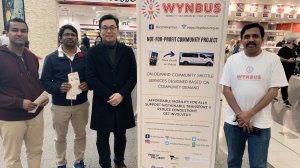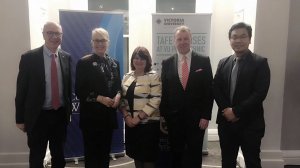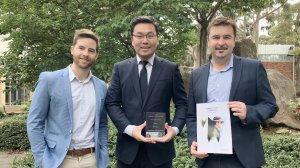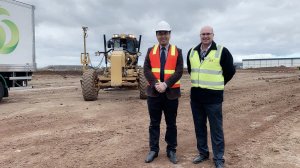- 简体中文
- English
Smart city is streets ahead

Imagine being able to walk through Werribee’s CBD and seeing all the developments that are planned for the area. At Wyndham council, it’s as simple as popping on a headset.
The council’s WynLens project has employed holographic mixed-reality technology – merging real and virtual worlds to produce new environments where physical and digital objects co-exist and interact – to provide a three-dimensional vision of what the future holds for Werribee.
The Australian-first technology is so cutting edge that it recently won the 2017 National Award for Excellence in Local Government.
The council’s project team has also been accepted to go to the Smart City Expo World Congress in Barcelona later this year, and is looking for corporate sponsorship to fund the trip.
Dr Adam Mowlam, who spearheaded the project, said there was also scope to do a virtual “walk-through” of a proposed development.
He said the council had applied for a federal government grant to expand the scope of the WynLens project.
Wyndham council’s head of strategy and policy impact Natalie Walker, said since winning the award Wyndham had been approached by councils from all over Australia who were keen to find out how they could adapt the technology in their areas.
“We see the potential for us to deploy [this] across local government in Victoria but also potentially around Australia and the world if we design the next phase of the project,” Ms Walker said.
“All councils are grappling with this idea of how do you communicate, improve decision making, make it quicker, give residents, developers and investors a really quick understanding of what’s going on, once you put it on you can see it’s a really unique way of engaging people.”
The WynLens project is just one of the initiatives the council’s new smart cities portfolio is working on in a bid to create efficiencies in the way the city operates through technology.
Earlier this month, the council rolled out a number of solar-powered “smart bins” across Werribee’s CBD that automatically crush rubbish and recycling so that the bins can hold up to 600 litres of material – five times the capacity of an average rubbish bin.
Dr Mowlam said the smart cities team also planned to look at the city’s traffic problems by integrating data from VicRoads, Google maps and using sensors on Wyndham’s roads to get a complete picture of congestion and traffic flow.
“If we have high traffic – if there’s an incident, or road works going on – we’ve got a body of evidence to say head this way instead,” he said.
Ms Walker added: “At the heart of it is the council understanding and looking at innovative ways to deal with the congestion issue in our city. We know that that’s a really critical issue for our residents, and the council’s really keen to look at what it can do to improve that situation, whether it’s infrastructure, technological deployment, advocacy to the state.”
The team also plans to install sensors on stormwater drains to monitor and manage flooding, particularly in older parts of Werribee and Hoppers Crossing.
The portfolio is also trying to move many traditional council services – such as paying your rates bill, pet registration, applying for a parking permit – online, and is developing a smart city strategy that details its plans and goals for the future.
“We do have a strong workforce in the technology space … and it’s a young community, so they’re generally very accepting of technology,” Dr Mowlam said.
Smart city portfolio holder Aaron An said the smart cities department was in response to residents wanting the council to be innovative, and do more with less.
“We are transforming the way we operate, we are exploring new and different ways to engage with our residents, stakeholders, businesses and visitors,” Cr An said.

